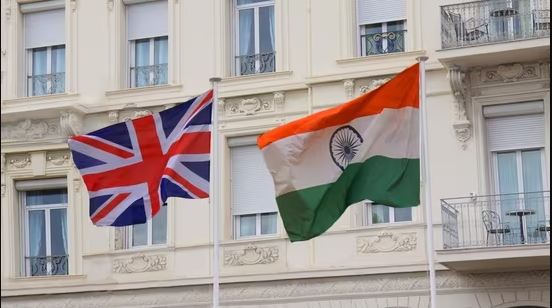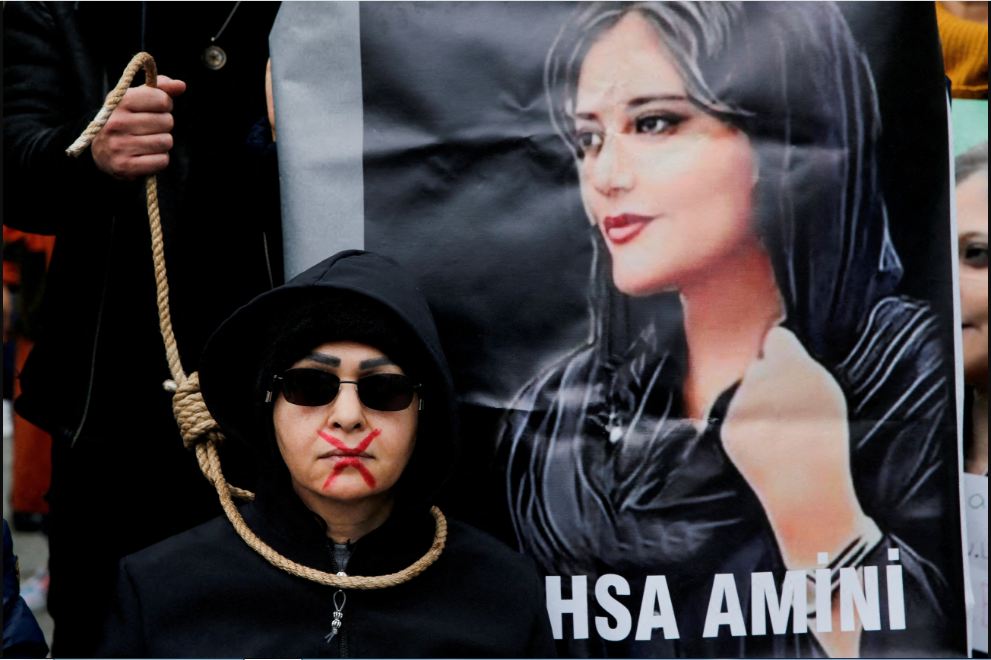‘Denied’: Government sources on UK trade discussions being ‘halted’ due to the Khalistani controversy – Report
Khalistani extremists staged a protest on March 19 at the Indian High Commission in London, and because of a “complete lack of security,” they were able to take down the Indian flag.
India on Monday denied claims that it had ‘disengaged’ from trade negotiations with the United Kingdom due to that country’s ‘lack of action’ following the vandalism of the Indian High Commission in London by Khalistani separatists last month.
According to government officials cited by the news agency ANI, any reports of the suspension of trade negotiations—first reported by the British newspaper The Times—were “baseless” and “denied.” The two nations remain “committed to delivering an ambitious and mutually beneficial” deal,” according to the UK’s Department for Business and Trade.
The following round of negotiations will occur on April 24.
This comes after The Times reported that India wants the British to take additional precautions to secure diplomatic facilities and personnel, citing sources from Whitehall, a neighbourhood in London that is home to various government and bureaucratic offices.
According to sources who spoke to the British newspaper, “the Indians do not want to talk about trade (until a) very public… demonstration of condemnation of Sikh extremism in the UK.” They specifically mentioned the March 19 events, when what India called a “complete lack of (British) security” allowed attackers to climb a first-floor balcony and remove the Indian flag to protest police action in Punjab.
The Indian government and its departments have not yet responded.
According to sources who spoke to the British newspaper, “the Indians do not want to talk about trade (until a) very public… demonstration of condemnation of Sikh extremism in the UK.” They specifically mentioned the March 19 events, when what India called a “complete lack of (British) security” allowed attackers to climb a first-floor balcony and remove the Indian flag to protest police action in Punjab.
Crowds gathered outside the building, there was some violence, which resulted in smashed windows and the removal of the Indian flag, according to British broadcaster the BBC. The Indian government took special exception at what it claimed was the British police’s slow response; this, despite the fact that it is alleged to have provided intelligence reports forewarning of such protests in light of the Indian government’s objections regarding the hunting for Waris Punjab De head Amritpal Singh.
In an effort to restart trade talks, which are crucial for a British economy still trying to establish itself post-Brexit and looking to cut tariffs and access Indian markets, the UK home ministry is reportedly planning a crackdown on Khalistani leaders and groups in that nation.
The deal will, according to the Rishi Sunak administration, treble exports to India.
Goyal stated that the trade negotiations were “going very well” and that “trade stands on its own legs” on March 30. However, he also emphasised that the Narendra Modi administration would always put the nation’s sovereignty and territorial integrity first and would not tolerate interference in domestic issues.
The British government claimed at the time that the two situations were “unconnected” and that London wanted close connections between the two nations.
India had called the senior-most British ambassador in Delhi to express its extreme unhappiness over the events of March 19 and (in a tit-for-tat gesture) decreased security at the British post.
There were no indications of a reduction in security personnel, however barricades outside the mission building in Delhi’s Chanakyapuri diplomatic neighbourhood and the British high commissioner Alex Ellis’ apartment on Rajaji Marg were taken down.
In recent months, there have also been reports of protests in support of Sikh separatists from Australia and Canada, as well as vandalism of Hindu temples.



